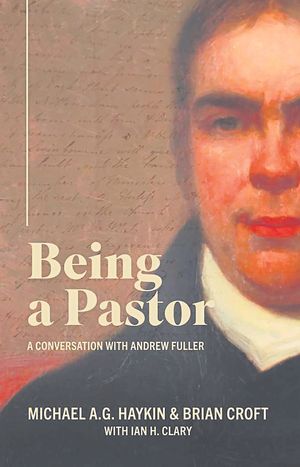In their introduction, the authors express their concern regarding the effect of megachurch pastors and public perception of what makes a good minister. A principle stated at the beginning of the book is that we should learn from the example of godly pastors during the history of the church.
Andrew Fuller was a Calvinist who proved to be an inspiration to the missionary movement of the nineteenth century. He was described by C. H. Spurgeon as the ‘greatest theologian of the century’ (p.20), and the authors demonstrate that he was a warm-hearted, successful pastor (pp. 22-23).
The book includes a brief biographical and historical background of earlier ordination sermons preached by respected non-conformist pastors like Matthew Henry, John Gill, and Philip Doddridge. Andrew Fuller preached his ordination sermons during the period from 1787 to his death in 1815.
The subjects which he addressed were enriched by his immense pastoral experience as he described pitfalls that ruined ministries. Needful attributes of a godly pastor covered in his sermon outlines included exemplary home life and relationships, the ability to consistently preach the riches of Christ, and a heart full of spiritual knowledge and love so that congregations are encouraged and challenged to live godly lives. Fuller spoke of the pastor’s need to follow up preaching in visitation of his hearers – but not in a way that would distract him from vital study and prayer, or cause his hearers to despise him.
Almost every page of the sermon outlines contain outstanding pieces of wisdom that could be profitably quoted in a review. The authors devote most attention to the sermon preached on Acts 11:24 at the ordination of Robert Fawkner in 1787, in which Fuller stated: ‘Hundreds of ministers have been ruined by indulging a thirst for the character of the great man, while they have neglected the far superior character of the good man’ (p.94).
This immensely important, practical book deserves to be read by every practicing pastor and pastor-in-training, anyone who preaches, and those who are inclined to criticise their pastors for not fulfilling their own ideals. Its thrust is to indicate that the pastor should first and foremost be a man who walks closely with the Lord. It is a serious warning against those who are simply ‘professionals’, merely studying the Bible to preach sermons.
Frederick Hodgson
Whitby



